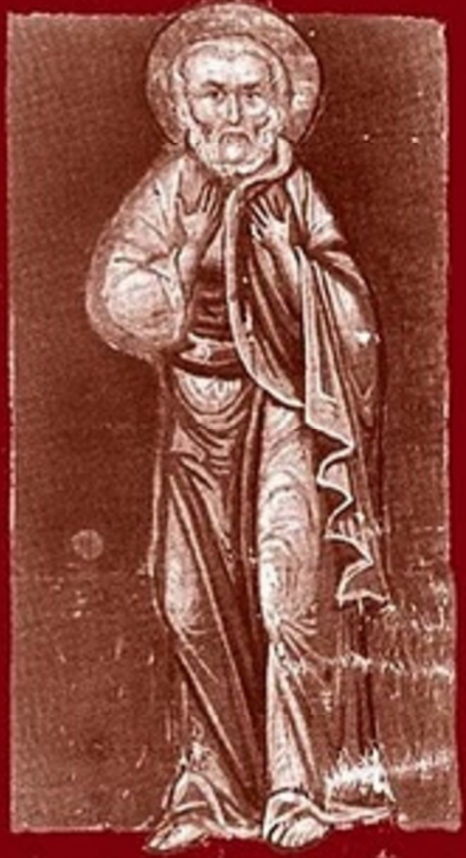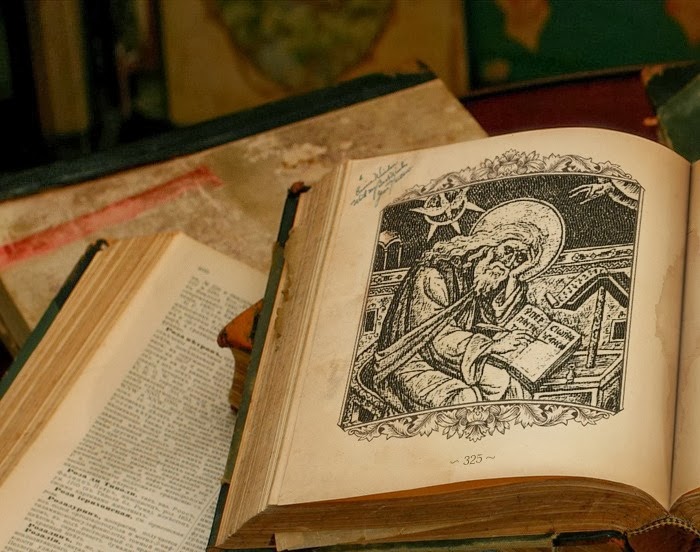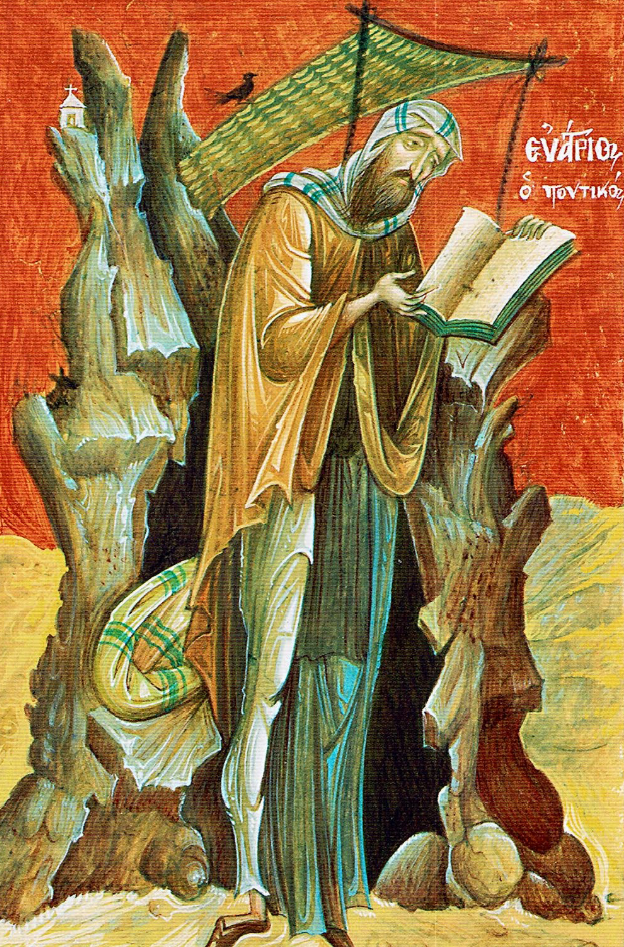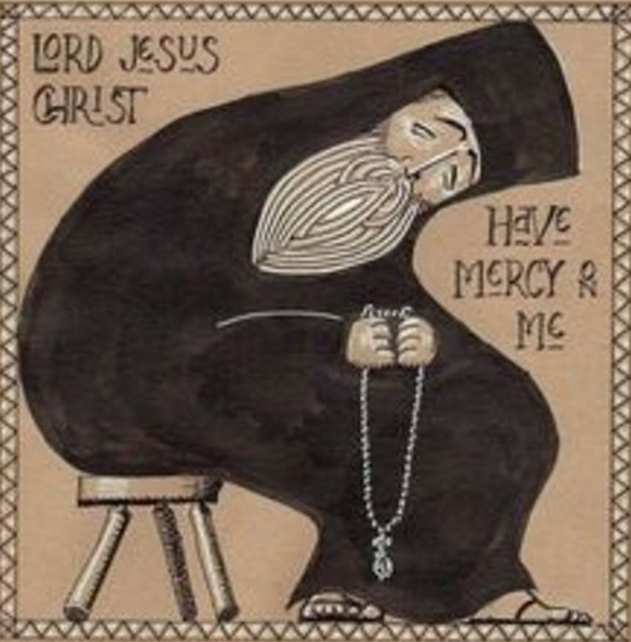It is, therefore, impossible to separate the soul from sin unless God should come and turn back this evil wind which inhabits both the soul and body. As anyone who watches a bird flying may wish that he himself could fly—yet still he cannot fly, being without wings—so also a man may have the will to be pure, to be without blame and spotless, to be always without evil and in communion with God, yet he does not have the power to fly into the divine air and enjoy the liberty of the Holy Spirit (2 Cor 3:18). The divine aspirations are not enough. If he does not have the wings given him, he cannot fly. Let us pray therefore to God that He give us “the wings of a dove” (Ps 55:7); of the Holy Spirit so we may fly to Him and find rest and that He may separate and take away from our soul and body such an evil wind-namely, sin itself, which inhabits the members of our soul and body. —St Macarius the Great
Philokalia

Discernment
Learning to filter influences and associations, allowing freedom from such things as social media, political meanderings, and casual socializing.
There is a demon, known as the deluder, who visits the brethren especially at dawn, and leads the intellect about from city to city, from village to village, from house to house, pretending that no passions are aroused through such visits; but then the intellect goes on to meet and talk with old acquaintances at greater length, and so allows its own state to be corrupted by those it encounters. Little by little it falls away from the knowledge of God and holiness, and forgets its calling. Therefore the solitary must watch this demon, noting where he comes from and where he ends up; for this demon does not make this long circuit without purpose and at random, but because he wishes to corrupt the state of the solitary, so that his intellect, over-excited by all this wandering, and intoxicated by its many meetings, may immediately fall prey to the demons of unchastity, anger or dejection – the demons that above all others destroy its inherent brightness.
Evagrios the Solitary ‘The Philokalia’


Prayer thoughts by an Eastern Orthodox Father
57. When the intellect no longer dallies with dispassionate thoughts about various things, it has not necessarily reached the realm of prayer: for it may still be contemplating the inner essences of these things. And though such contemplation is dispassionate, yet since it is of created things, it impresses their forms upon the intellect and keeps it away from God.
58. If the intellect has not risen above the contemplation of the created world, it has not yet beheld the realm of God perfectly. For it may be occupied with the knowledge of intelligible things and so involved in their multiplicity.
60. He who prays in spirit and in truth is no longer dependent on created things when honoring the Creator, but praises Him for and in Himself.
62. When your intellect in its great longing for God gradually withdraws from the flesh and turns away from all thoughts that have their source in your sense -perception, memory or soul-body temperament, and when it becomes full of reverence and joy, then you may conclude that you are close to the frontiers of prayer.
Evagrios the Solitary ‘The Philokalia’


Putting aside wrath
When our wrathful power is aroused in a way contrary to nature, it greatly furthers the aim of the demons and is an ally in all their evil designs. Day and night, therefore, they are always trying to provoke it. And when they see it tethered by gentleness, they at once try to set it free on some seemingly just pretext; in this way, when it is violently aroused, they can use it for their shameful purposes. It must not be aroused either for just or for unjust reasons; and we must not hand a dangerous sword to those too readily incensed to wrath, for it often happens that people become excessively worked up for quite trivial reasons. Tell me, why do you rush into battle so quickly, if you are really above caring about food, possessions and glory? Why keep a watchdog if you have renounced everything? If you do, and it barks and attacks other men, it is clear that there are still some possessions for it to guard. But since I know that wrath is destructive of pure prayer, the fact that you cannot control it shows how far you are from such prayer. Evagrios the Solitary ‘The Philokalia’
Homer opens the Illiad in what will become the essential passion for the way of the warrior, the song of Alexander the Great, a carrying voice in the ancient world before Jesus Christ.
Achilles sing, O Goddess! Peleus’ son;
His wrath pernicious, who ten thousand woes
Caused to Achaia’s host, sent many a soul
Illustrious into Ades premature,
And Heroes gave (so stood the will of Jove)
To dogs and to all ravening fowls a prey,
When fierce dispute had separated once
The noble Chief Achilles from the son
Of Atreus, Agamemnon, King of men.

Evagrios the Solitary

Desert Father

In storms and squalls we need a pilot, and in this present life we need prayer: for we are susceptible to the provocations of our thoughts, both good and bad. If our thought is full of devotion and love of God, it rules over the passions. As hesychasts, we should discriminate between virtue and vice with discretion and watchfulness: and we should know which virtues to practice when in the presence of our brethren and elders and which to pursue when alone. We should know which virtue comes first, and which second or third; which passions attack the soul and which the body, and also which virtues concern the soul and which the body. We should know which virtue pride uses in order to assault the intellect, and which virtue leads to vainglory, wrath or gluttony. For we ought to purify our thoughts from ‘all the self-esteem that exalts itself against the knowledge of God’ (2 Corinthians 10:5).
The first virtue is detachment, that is, death in relation to every person or thing. This produces the desire for God, and this in turn gives rise to the anger that is in accordance with nature, and that flares up against all the tricks of the enemy. Then the fear of God will establish itself within us, and through this fear love will be made manifest. –St Isaiah the Solitary

Strife in Pursuit
There is among the passions an anger of the intellect, and this anger is in accordance with nature. Without anger a man cannot attain purity: he has to feel angry with all that is sown in him by the enemy. When Job felt this anger he reviled his enemies, calling them “dishonorable men of no repute, lacking everything good, whom I would not consider fit to live with the dogs that guard my flocks’ (cf Job 30:1, 4. LXX). He who wishes to acquire the anger that is in accordance with nature must uproot all self-will, until he establishes within himself the state natural to the intellect. –The Philokalia: St Isaiah the Solitary verse I
My eyes are spent with weeping; my soul is in tumult; my heart is poured out in grief because of the destruction of the daughter of my people, because infants and babes faint in the streets of the city. [12] They cry to their mothers, “Where is bread and wine?” as they faint like wounded men in the streets of the city, as their life is poured out on their mothers’ bosom. [13] What can I say for you, to what compare you, O daughter of Jerusalem? What can I liken to you, that I may comfort you, O virgin daughter of Zion? For vast as the sea is your ruin; who can restore you? —Lamentations

St Isaiah the Solitary

Soliloquy
If you find yourself hating your fellow men and resist this hatred, and you see that it grows weak and withdraws, do not rejoice in your heart; for this withdrawal is a trick of the evil spirits. They are preparing a second attack worse than the first; they have left their troops behind the city and ordered them to remain there. If you go out to attack them, they will flee before you in weakness. But if your heart is then elated because you have driven them away, and you leave the city, some of them will attack you from the rear while the rest will stand their ground in front of you; and your wretched soul will be caught between them with no means of escape. The city is prayer. Resistance is rebuttal through Christ Jesus…. The Philokalia: St Isaiah the Solitary verse II



Recent Comments